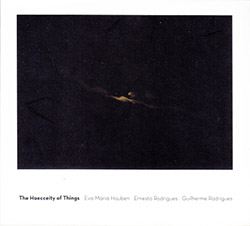
A mysterious album of viola, viola d'amore, organ, and field recordings, merging the compositional minimal approach of Wandelweiser artist Eva-Maria Houben with Creative Sources performers Ernesto & Guilherme Rodrigues, the field recordings creating a virtual setting of environmental stillness, evoking slow motion in the unique "thisness" of haecceity.
In Stock
Quantity in Basket: None
Log In to use our Wish List
Shipping Weight: 3.00 units
EU & UK Customers:
Discogs.com can handle your VAT payments
So please order through Discogs
Sample The Album:
Eva-Maria Houben-organ
Ernesto Rodrigues-viola
Guilherme Rodrigues-viola d'amore, field recordings
Click an artist name above to see in-stock items for that artist.
UPC: 5609063405781
Label: Creative Sources
Catalog ID: cs578
Squidco Product Code: 26982
Format: CD
Condition: New
Released: 2018
Country: Portugal
Packaging: Cardboard Gatefold
Organ recorded at St. Thomas Morus Church, in Krefeld, Germany, in July, 2018.
Viola recorded in Berlin, Germany, in October, 2018.
Viola d'Amore recorded in Berlin, Germany, in October, 2018.
Field Recording recorded at Pico Island, the Azores, Portigal, in September, 2018.
"Haecceity" (/hɛkˈsiːɪti, hiːk-/; from the Latin haecceitas, which translates as "thisness") is a term from medieval scholastic philosophy, first coined by followers of Duns Scotus to denote a concept that he seems to have originated: the discrete qualities, properties or characteristics of a thing that make it a particular thing. Haecceity is a person's or object's thisness, the individualising difference between the concept "a man" and the concept "Socrates" (i.e., a specific person).
Haecceity may be defined in some dictionaries as simply the "essence" of a thing, or as a simple synonym for quiddity or hypokeimenon. However, such a definition deprives the term of its subtle distinctiveness and utility. Whereas haecceity refers to aspects of a thing that make it a particular thing, quiddity refers to the universal qualities of a thing, its "whatness", or the aspects of a thing it may share with other things and by which it may form part of a genus of things."-Wikipedia
"This is music in which you're cast into an open sea-orientation and hand-holds come gradually, and then only to the alert and intuitive. This is music that doesn't contrive to mystify, but presents the secret, singular nature of its sounds; in this way, the music is so transparent, so self-enacting, as to initially seem slight, even unsubstantial. Enter and re-enter the environment of the piece and you regain and retool your senses and begin to perceive what's on offer. The basic ground of the work owns an affinity with the spirit of some of the Wandelweiser composers- Manfred Werder chiefly-and in fact was co-composed by one of the collective's preeminent members, Eva-Maria Houben. The Rodrigues', père et fils, in collaboration with Ms. Houben, create environments to be inhabited; we, the listeners, are the creatures who feel quickened or startled or seduced. We're invited to grasp the sounds, their flavor, their affect, their micro-pulses and heartbeats, their small power.
Rodrigues and Houben's sound world doesn't simply invite the listener's participation and loosed imagination, it necessitates it. Its intermittent gusts of airy organ tones, fragile, scraped strings, micro-harmonies and waxing and waning cricket songs come to us in billows and soft choirs of pure sentience.
The 13th century philosopher Duns Scotus posited the idea of the haecceity of all things, a word meaning, simply, thisness. Haecceity insists everything owns an essence of its own that makes it what it is. The poet Hopkins embraced Scotus' principle in his lines of verse; his word was inscape. Inscapes are the true nature of a thing, always dynamic, never static, always moving in and out of relation to the thisness of others. Such as we hear in the music of Houben and Rodrigues.
The haecceity of the sounds exist for the listener to assemble, connect, puzzle over. The haecceity of things offers no meaning-rather, it speaks and spells, cries and dissipates. Thisness in sound, the startlingly clear this, not-that quality, was expressed beautifully by composer Jürg Frey in a recent interview: "I treat my pitches and music carefully, with respect, and let them have their say. I have the idea they talk to me."
Face it, we are dulled and deadened by the world's relentless, intrusive noise. In psychic self-defense we filter and blinker our senses, making the approach to this music a gradual, layered one.
Dragonflies, wings in the sun, draw flame. Ernesto, Guilherme and Eva-Maria play. A music that restores the listener's attunement to the haecceity of things is an act of generosity."-Jesse Goin, November 2018
Artist Biographies
• Show Bio for Eva-Maria Houben "Eva-Maria Houben (born 1955) studied Music Education at Folkwang-Musikhochschule Essen and the organ with Gisbert Schneider. Following her exams she taught both German and Music Education at Secondary School. She received her doctorate and postdoctoral lecturing qualification in musicology and was called for lectures at Gerhard-Mercator-Universität Duisburg and Robert-Schumann-Hochschule Düsseldorf. Since 1993 Professor Houben has been lecturing at Dortmund University`s "Institut für Musik und Musikwissenschaft", with both music theory and contemporary music as her focus. Up to now many books were published, concerning contemporary music, contemporary composers and traditional music, listened to with 'new ears'. Eva-Maria Houben has been performing works for the organ for more than 30 years. As she is related to the "wandelweiser-group" of composers, her compositions are published by "edition wandelweiser", Haan. Her list of compositions up to now includes works for the organ, piano, clarinet, trombone, violoncello and other solo instruments, works for voice and piano, for wind and chamber ensembles, for orchestra and for voice and orchestra, works for choir (www.wandelweiser.de). She publishes on subjects of contemporary music (Steiner, PFAU, Edition Howeg, bis-label Oldenburg)." ^ Hide Bio for Eva-Maria Houben • Show Bio for Ernesto Rodrigues "He has been playing the violin for 30 years and in that time has played all genres of music ranging from contemporary music to free jazz and improvised music, live and in the studio. His main interest shifted towards contemporary improvised and composed music. The relationship with his instruments is focused in sonic and textural elements. Electronic music was an early influence on his approach to violin playing, which challenges traditional romantic concepts of the violin/viola through use of preparations and micro tuning. Active in different settings on the Portuguese scene for free improvised music, both as a collaborator and in leading his own groups. Music for Dance, Cinema, Video and Performance. Has created the record label Creative Sources Recordings in 1999, which mainly concentrates on releasing experimental and electro-acoustic music." ^ Hide Bio for Ernesto Rodrigues • Show Bio for Guilherme Rodrigues "Was born 1988 in Lisboa, Portugal and started playing cello and trumpet at Orquestra Metropolitana de Lisboa at the age of 7. In 1999 joined Conservatório Nacional de Música de Lisboa to study classical and music theory and in the current year recorded his first album - Multiples - with Ernesto Rodrigues and José Oliveira out on Creative Sources Recordings. Apart from work in music ensembles ranging for contemporary classical to free improvisation, also works with live music poetry, theatre and film-music. After lengthy residency in Lisboa, (1988-2016) moved to Berlin and has been active as composer and improviser in the scene. Worked with some international and renewed artists like Ernesto Rodrigues, Jean-luc Guionnet, Margarida Garcia, Manuel Mota, Alfredo Costa Monteiro, Sei Miguel, Tim Goldie, Jeffrey Morgan, Oren Marshall, Gerhard Uebele, Klaus Kurvers, Gabriel Paiuk, Nicolas Field, Jaime Fennelly, Blaise Siwula, Will Guthrie, Pawel Grabowski, Michael Thieke, Wade Matthews, Leonel Kaplan, Diego Chamy, Gabriel Paiuk, Barry Weisblat, Joe Giardullo, Jassem Hindi, Tisha Mukarji, Masahiko Okura, Taku Unami, Toshihiro Koike, Sharif Sehnaoui, Christine Abdelnour, Alexandre Bellenger, Carlos Zingaro, Romaric Sobac, Nuno Rebelo, Nuno Torres, Naoto Yamagashi, Heddy Boubaker, Gerhard Uebele, Guillermo Torres, Tomas Gris, Carlos Santos, Bruno Parrinha, Miguel Leiria Pereira, Miguel Ivo Cruz, Alberto Cirera, Nuno Morão, Mark Sanders, Dennis Gonzaléz, Alípio Carvalho Neto, Raymond Macdonald, Neil Davidson, David Stachenas, Lisa Ullén, D'incise, Cyril Bondy, Miguel Mira, Rodrigo Amado, Abdul Moimême, Monsieur Trinité, João Madeira, Álvaro Rosso, Gil Gonçalves, Marian Yanchyk, Filipe Passos, Rodrigo Pinheiro, Christian Wolfarth, Thanos Chrysakis, Bechir Saade, Kurt Liedwart, Miguel A. Garcia, Ilia Belorukov, Andrew Lafkas, Gao Jiafeng, Eric Wong, Johan Moir, Casey Moir, Magda Mayas, Matthias Muller, Alexander Frangenheim ... Has performed and toured in all Europe. Released more than 30 albums of his own projects." ^ Hide Bio for Guilherme Rodrigues
7/1/2025
Have a better biography or biography source? Please Contact Us so that we can update this biography.
7/1/2025
Have a better biography or biography source? Please Contact Us so that we can update this biography.
7/1/2025
Have a better biography or biography source? Please Contact Us so that we can update this biography.
Track Listing:
1. The Haecceity Of Things 1:01:32
Creative Sources
Compositional Forms
Electro-Acoustic
Electro-Acoustic Improv
Field Recordings
Piano & Keyboards
Stringed Instruments
lowercase, reductionist, micro-improv, sound improv, onkyo sound
European Improvisation and Experimental Forms
Trio Recordings
New in Compositional Music
Search for other titles on the label:
Creative Sources.


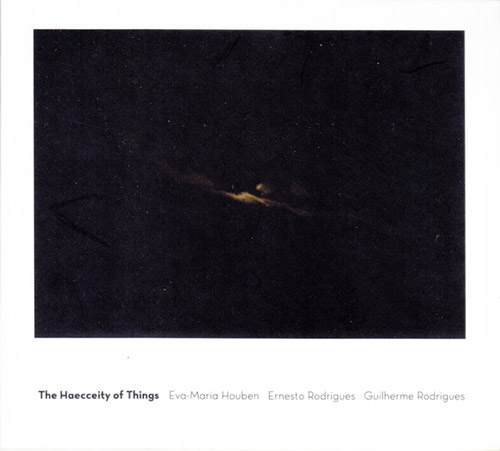



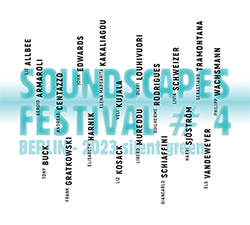



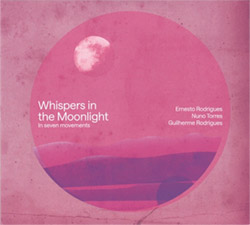



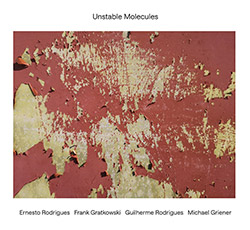





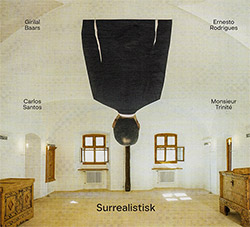
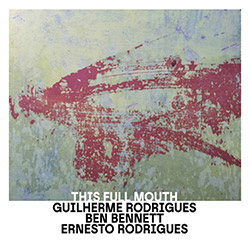
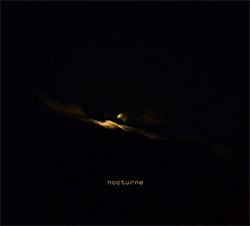
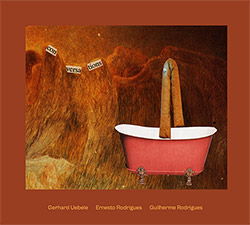
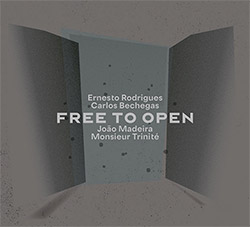
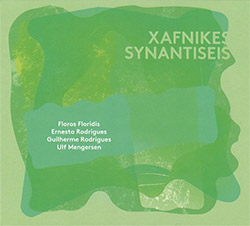
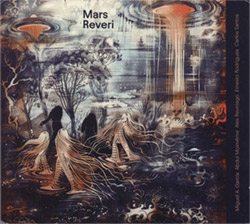
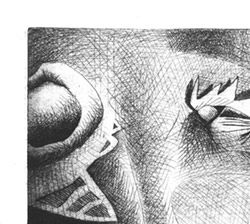
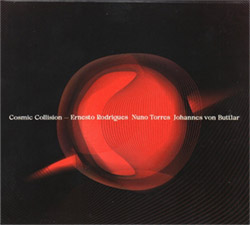










![Deupree, Jerome / Sylvie Courvoisier / Lester St. Louis / Joe Morris: Canyon [2 CDs]](https://www.teuthida.com/productImages/misc4/36404.jpg)


![Eternities: Rides Again [CASSETTE]](https://www.teuthida.com/productImages/misc4/36247.jpg)

![Lopez, Francisco: Untitled (2021-2022) [2 CDs]](https://www.teuthida.com/productImages/misc4/36438.jpg)




![Eventless Plot | Haarvol: The Subliminal Paths [CASSETTE + DOWNLOAD]](https://www.teuthida.com/productImages/misc4/36232.jpg)











![Eventless Plot | Francesco Covarino: Methexis [CASSETTE + DOWNLOAD]](https://www.teuthida.com/productImages/misc4/36231.jpg)


![Das B (Mazen Kerbaj / Mike Majkowski / Magda Mayas / Tony Buck): Love [VINYL]](https://www.teuthida.com/productImages/misc4/36329.jpg)



![Hemphill Stringtet, The: Plays the Music of Julius Hemphill [VINYL]](https://www.teuthida.com/productImages/misc4/36409.jpg)



![Halvorson, Mary Septet: Illusionary Sea [2 LPS]](https://www.teuthida.com/productImages/misc4/17952.jpg)






![Money : Money 2 [2 CDs]](https://www.teuthida.com/productImages/misc4/35894.jpg)




![Klinga, Erik: Elusive Shimmer [VINYL]](https://www.teuthida.com/productImages/misc4/36258.jpg)
![CHANGES TO blind (Phil Zampino): Volume 9 - I Wave on a Fine Vile Mist [CD + DOWNLOAD]](https://www.teuthida.com/productImages/misc4/36061.jpg)

![Wallmart / Rubbish: Asset Protection [split CD]](https://www.teuthida.com/productImages/misc4/35900.jpg)


![+Dog+: The Family Music Book Vol. 5 [2 CDs]](https://www.teuthida.com/productImages/misc4/35897.jpg)
![Kuvveti, Deli : Kuslar Soyledi [CASSETTE w/ DOWNLOAD]](https://www.teuthida.com/productImages/misc4/36107.jpg)

![Nakayama, Tetsuya: Edo Wan [CASSETTE w/ DOWNLOAD]](https://www.teuthida.com/productImages/misc4/36105.jpg)




![Yiyuan, Liang / Li Daiguo: Sonic Talismans [VINYL]](https://www.teuthida.com/productImages/misc4/35957.jpg)
![Brown, Dan / Dan Reynolds: Live At The Grange Hall [unauthorized][CASSETTE]](https://www.teuthida.com/productImages/misc4/36245.jpg)








![Palestine, Charlemagne / Seppe Gebruers: Beyondddddd The Notessssss [VINYL]](https://www.teuthida.com/productImages/misc4/36206.jpg)
![Palestine, Charlemagne / Seppe Gebruers: Beyondddddd The Notessssss [NEON GREEN VINYL]](https://www.teuthida.com/productImages/misc4/36207.jpg)

![Laubrock, Ingrid: Purposing The Air [2 CDs]](https://www.teuthida.com/productImages/misc4/35639.jpg)

![Yoko, Ono / The Great Learning Orchestra: Selected Recordings From Grapefruit [2 CDs]](https://www.teuthida.com/productImages/misc4/35841.jpg)









![Zorn, John / JACK Quartet: The Complete String Quartets [2 CDs]](https://www.teuthida.com/productImages/misc4/35609.jpg)

![Lonsdale, Eden: Dawnings [2 CDs]](https://www.teuthida.com/productImages/misc4/35480.jpg)



![Sorry For Laughing (G. Whitlow / M. Bates / Dave-Id / E. Ka-Spel): Rain Flowers [2 CDS]](https://www.teuthida.com/productImages/misc4/35985.jpg)

![Rolando, Tommaso / Andy Moor : Biscotti [CASSETTE w/ DOWNLOADS]](https://www.teuthida.com/productImages/misc4/36106.jpg)


![Electric Bird Noise / Derek Roddy: 8-10-22 [CD EP]](https://www.teuthida.com/productImages/misc4/35970.jpg)








![Elephant9 : Mythical River [VINYL]](https://www.teuthida.com/productImages/misc4/34624.jpg)



![Elephant9 with Terje Rypdal: Catching Fire [VINYL 2 LPs]](https://www.teuthida.com/productImages/misc4/35355.jpg)
![Deerlady (Obomsawin, Mali / Magdalena Abrego): Greatest Hits [VINYL]](https://www.teuthida.com/productImages/misc4/34876.jpg)







![Surplus 1980: Illusion of Consistency [CD]](https://www.teuthida.com/productImages/misc4/35069.jpg)
![Staiano, Moe: Away Towards the Light [VINYL + DOWNLOAD]](https://www.teuthida.com/productImages/misc4/35037.jpg)
![Coley, Byron: Dating Tips for Touring Bands [VINYL]](https://www.teuthida.com/productImages/misc4/17906.jpg)

![Lost Kisses: My Life is Sad & Funny [DVD]](https://www.teuthida.com/productImages/misc4/lostKissesDVD.jpg)